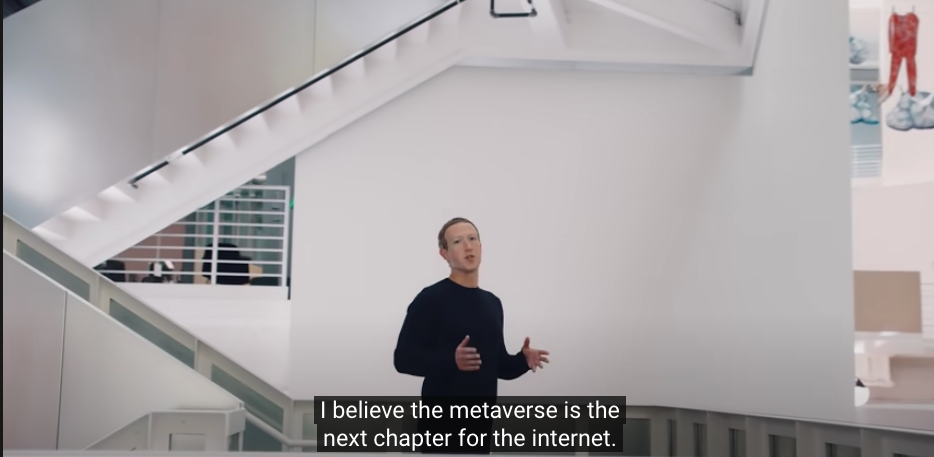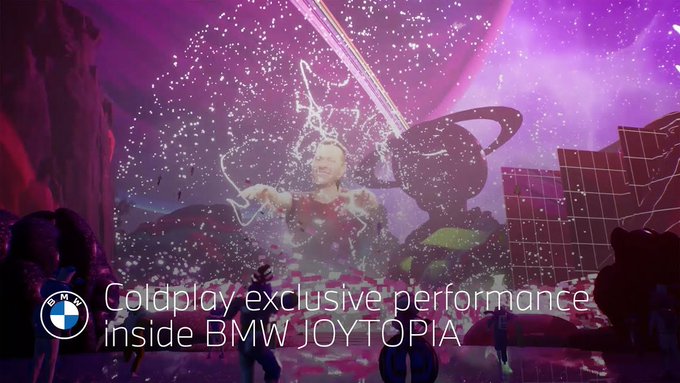Welcome to the Metaverse – Journey into the digital parallel universe

The revolution is near. We are moving to the next level, where physical and virtual worlds will finally merge.
Enter the metaverse - a welcome alternative to the real world. Detached from physical laws. And without limits.
You can buckle up and marvel. Or unbuckle and be there live. The Metaverse has long since ceased to be a digital utopia, but is close to the future or even already a reality.
That the world will change is certain.
But what exactly does the digital future look like? And how will the (brave) new world change our private and business lives?
What is the Metaverse actually?
The Metaverse is a virtual world in which we enter and participate. So we no longer look down from above, but are part of this world. Real and virtual life merge.We will experience three-dimensional activities that should hardly differ from reality. With the help of sensors, cameras and incredibly powerful computing power.
The generation of gamers will only smile wearily at this, because players of Fortnite, Minecraft or Roblox have been dealing with augmented reality (AR) and virtual reality (VR) for a long time.
But the Metaverse goes much further. Meeting friends, working, going to the doctor, learning or relaxing - all this will shift to the digital parallel universe.
And with infinite space.
An infinite number of design options. And infinite resources and possebiliites.
So the Metaverse should not feel like a game, but like a part of our personality. Full of experiences and emotional worlds.
Metaverse is a digital world in which we can live. It can be freely shaped and is not dominated by Facebook or other corporations. But by us, by us analog people. Or digital?
So let's take Zuckerberg's word for it: Metaverse will be "the next big thing.”

What is so special about the Metaverse?
The Metaverse is actually intended to function completely independently of all major platforms. In other words, decentralized. So you will soon be able to create new worlds and make independent decisions with your avatar. Without borders. And without having to log in anywhere, because Internet services and their applications now merge seamlessly.Thus, according to Meta's founders, everyone retains sovereignty over their personal data and surfing behavior is not tracked by a third-party company. Well, we'll take their word for it.
In addition to decentralization, there are other special features about Metaverse.
Namely, we act there as individuals and have only one account. Wherever we appear, we become visible with our avatar. That means: no one can hide. And everyone who is in the same place experiences the same impressions. Actually, just like in the real world.
There is no limit to the number of rooms and users. Everyone must be given the opportunity to participate in an activity and interact with all other participants there. Nevertheless, the Metaverse continues in real time - regardless of whether you are online or not.
But in the Metaverse, you're not just supposed to be there. You can also help shape how the digital parallel universe will develop in the future and share content and experiences there.
Your creativity is released into freedom and entire worlds can be created or visited with a click. Social connections, communication, business - everything we do today in the physical world will soon transfer to the metaverse. And vice versa.
But how does this make the Metaverse different from today's Internet? After all, more areas that are moving to the virtual world will soon exist anyway.
The big difference, however, is that the Internet is dominated by megacorporations. Metaverse, however, is supposed to give power back to the individuals - especially in the economy.
Whether this utopia becomes reality remains to be seen.
How the virtual world can change our lives
You probably already have some images in your head of the impact the metaverse will have on your life. But the changes are so far-reaching that they open up entirely new dimensions for all areas.Effects on private life
Living in a virtual world - especially during the pandemic, an escape from reality would sometimes have been quite desirable.So foreign places tempt you to come and see them. Sustainable, resource-saving and without having to travel forever. Or meet your friends who are on the other side of the world and spend some quality time with them. Maybe on a walk right by the sea.
And so the impact on your personal life can be spun on forever: Enjoy a live concert by your favorite band, stroll through an art gallery, or make your doctor's appointment online without getting out of bed. A very good example is BMW and Journee in the joint project "Joytopia": Presentation of BMW's visions for the future including a live concert by Coldplay. All in the Metaverse.
Image source: https://twitter.com/coldplayxtra/status/1435287984417423366
Of course, you can also work full-time in the Metaverse and earn your money there. Without a bank. Without the state. And when your current location no longer brings you income or you simply need a change of scenery, you pack your bags and settle down in another world.
Impact on the world of work
The issue of location independence will primarily affect our everyday work. Meetings will now be held in the metaverse - and not just rigidly in front of a display, but together at a table.In the B2B sector, entrepreneurs will from now on be able to share their company premises and the associated production halls for a virtual tour.
But the economic aspect of the metaverse goes much further. Because this forms its own economic world in which everyone can turn their work into value. This is how new jobs are created, and this is how you will have the opportunity to create, buy, sell or invest in things in the future.
Digital possessions can be managed via blockchain and paid for with a cryptocurrency. NFTs (Non Fungible Tokens) already show the direction in which the journey is heading. These are digital products that can neither be copied nor exchanged - for example, a virtual concert ticket, a digital work of art or sneakers that will never exist in the real world. After all, your avatar wants to look good and experience something.
Of course, you can also work full-time in the Metaverse and earn your money there. Without a bank. Without the state. And when your current location no longer brings you income or you simply need a change of scenery, you pack your bags and settle down in another world.
This is how consumer behavior is changing drastically. Will we all soon be driving virtual cars and wearing shoes we can never touch?
Big players, like Nike, Gucci, Microsoft and Facebook say "yes." They are already creating digital twins of their products and changing their entire strategy. And of course they want to get a big slice of the pie by investing, because new digital business models will emerge in the metaverse.
This is how consumer behavior is changing drastically. Will we all soon be driving virtual cars and wearing shoes we can never touch?
Effects on the marketing landscape
Of course, the marketing landscape must also respond to changing consumer habits.Consumers enter three-dimensional spaces where they attend fashion shows, test drive cars and try on clothes. If this is not enough in the virtual world, they additionally order these things in real life. After all, the avatar has approved it. This development is called immersive advertising and means that users not only view the advertising, but can interact with it.
Interaction between brands and their target audience is also becoming even closer and more intimate than it already is through social media. Influencers meet with fans and attend an event together, while receiving interactive and consumer-targeted advertising messages along the way.
Whether their impressions can be tracked via eye tracking is still up in the air.
What is certain, however, is that marketing will become more tangible, more individual, more cross-channel, and even more tailored to the individual user.
Conclusion: The Metaverse as a Happy Place or a Place Full of Empty Promises
The Metaverse is supposed to become accessible to us as early as 2024. And is thus no longer a utopia, as once described by Neal Stephenson in the science fiction novel "Snow Crash.However, there are some preconditions that must be created in advance - for example, uniform standards regarding data protection, property rights and privacy. Critics are already claiming that the metaverse will finally make people transparent and that this will mean the end of anonymity.
It also needs convenient technology. Tight glasses or contact lenses that let you immersively dive. Vaporizers that create smells. And gloves that enable haptic sensing. All of that already exists. But all of these things now need to be mass-marketed or even new gadget or biological stimulators developed.
Huge VR goggles and heavy AR headsets with limited field of view will not satisfy users in the long run. Contact lenses and motion trackers that can be sewn into clothing are needed here. But please make them affordable, otherwise the gap between rich and poor will continue to widen.
In addition to technical aspects, however, we must not forget what happens to the individual in the metaverse. We create a new individuality on the web and real life becomes secondary for the time being. The body dissolves. Needs fade into the background. And everyone can play God.
Personality is now expressed digitally. And we run the risk of losing ourselves in the new world. Those who refuse, however, will no longer find a connection in modern life.
Zuckerberg is leveraging this idea, saying that it's not about spending more time in front of a screen. It's about making the time we spend on the Internet better.
But that's easy for him to say.
Let's face it: despite decentralization, it's mainly the big players who will benefit from the metaverse. After all, if there is no regulation by the state, the Internet corporations of this world will surely take over. Which in turn raises the question of who will take care of cybercrime in the metaverse.
But all that remains to be seen. The metaverse simply has to grow and develop. Because the spaces in this parallel universe are malleable. For now. Now it is up to us what we make of it.
The metaverse will change our world and holds enormous potential for entrepreneurs, content creators and advertisers. So it's important for us to be prepared now.
Sources https://www.hbi.de/blog/marketing-im-metaverse/https://machen.fm/marketing-sales/10516/was-ist-das-metaverse/ https://t3n.de/news/metaverse-erklaert-hype-zukunft-1419141/https://t3n.de/magazin/metaverse-was-ist-moeglich-leben-veraendern-251455/ https://www.zuehlke.com/de/insights/das-metaverse-kommt-und-es-wird-unsere-welt-nachhaltig-veraendern https://marketing.ch/das-metaverse-was-es-ist-und-wie-es-die-marketingwelt-revolutionieren-wird/ https://www.netzpiloten.de/was-ist-das-metaverse-metaversum/https://www.somengo.de/2021/11/05/metaverse-marketing/ https://fleishmanhillard.de/2022/01/was-metaverse-im-bereich-der-kommunikation-veraendern-wird/ https://www.fidelity.de/fidelity-articles/themen-im-fokus/leben-wir-bald-alle-im-metaverse/ https://t3n.de/magazin/metaverse-was-ist-moeglich-leben-veraendern-251455/





